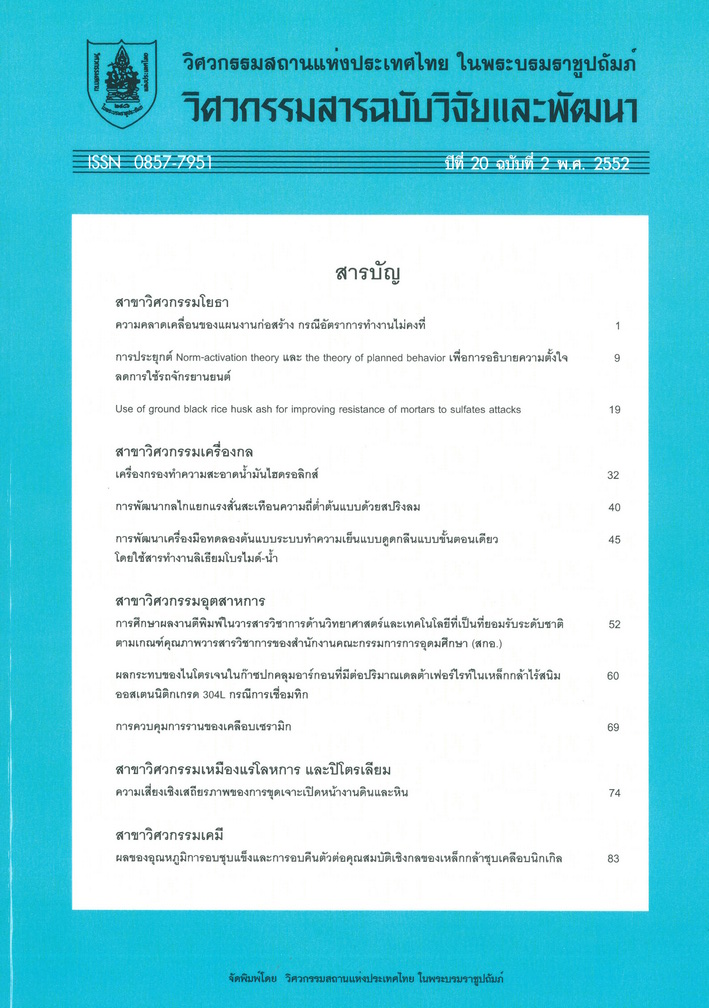ความคลาดเคลื่อนของแผนงานก่อสร้าง กรณีอัตราการทำงานไม่คงที่
Main Article Content
Abstract
Construction delay is a problem that usually occurs in most mega projects because these projects have complicate process and relatively duration. Therefore, performance evaluation during construction is important. According to the theory of project control system, schedule variance () is the difference between BCWP (Budgeted Cost of Work Performed) and BCWS (Budgeted Cost of Work Scheduled). The calculation of BCWS is normally based on a ratio of durations. That is, each activity it is assumed that is performed in a uniform production rate. In practice, a planner may schedule an activity with varying production rates. Then schedule variance calculated from the original theory may contain an error. This paper presents a method of calculating schedule variance (), in a case of varying production rates, by adaptive theory of schedule variance developed by Robert I. Carr (1993) and Earned Value Analysis. It is found that scheduled percent complete () and scheduled percent complete due to actual start () is equal to the summation of the percentage of work scheduled in each period. Thus, the calculation of schedule variance due to actual start () and schedule variance due to production rate () must be adjusted so that the value of the overall schedule variance is close to the actual operations.
Article Details
The published articles are copyright of the Engineering Journal of Research and Development, The Engineering Institute of Thailand Under H.M. The King's Patronage (EIT).


